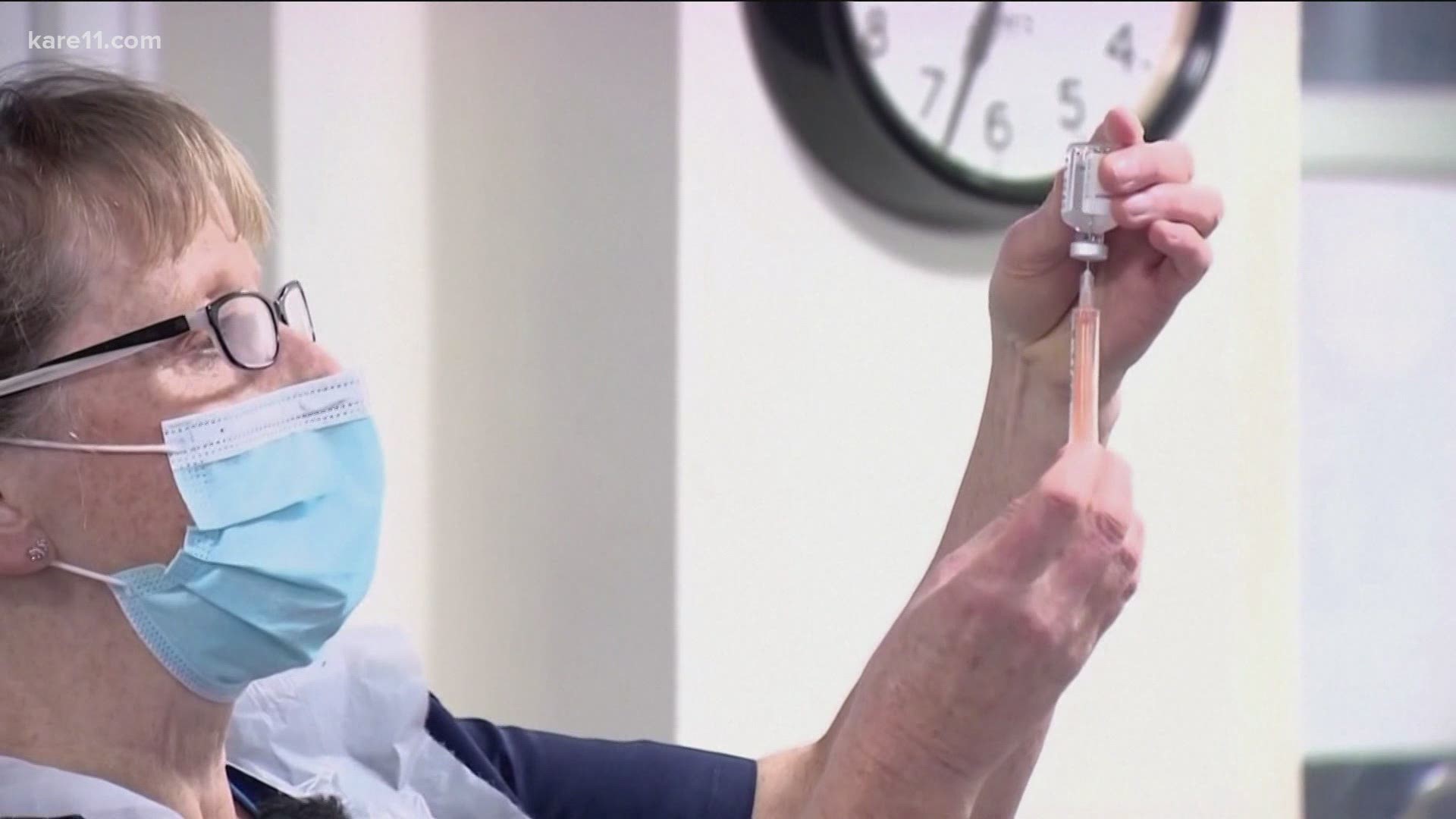MINNEAPOLIS — Even before the vaccine rollout, there have been ongoing efforts to reduce vaccine hesitancy in minority groups and communities of color. However, according to an NPR/PBS/Marist poll, 49% of Republican men, 47% of Trump supporters and 41% of Republicans overall said they would not be vaccinated even if they had the chance to be.
"We can understand that comes from a lot of the messaging that came from the former administration both about the risk of COVID to individuals health and safety sowing some seeds of mistrust in the both public health institutions as well as science in general," Dr. Jennifer Needle said.
Needle is a pediatrician at M Health and also an associate professor at the University of Minnesota. She said despite the administration change, messaging surrounding vaccines hasn't been clear enough.
"There hasn't been adequate enough messaging about the fact that it's not about your own individual risk of getting COVID and getting sick from COVID," she explained. "We have to think about it as our relational community responsibility to others."
Even with the fact that the vaccine protects the person who received the shot, hesitancy remains high.
"Both the belief that I personally am not at risk, and I have mistrust of vaccines, both because of probably mistrust of government intervention, mistrust of big pharma," Dr. Needle guessed, when it came to reasons why people felt hesitant. "And we have not historically in anyone's lifetime had an effective vaccine developed in less than one year."
While anti-vaxxers, and vaccine-refusers have been around for a while, Needle said there is a difference between refusers and those who are hesitant.
"The percentage of people who are vaccine refusers are probably those no amount of education or community messaging-- no particular person a community member, someone at your house of worship will convince those people otherwise," she said.
However, for those who are on the fence, there's room for persuasion, especially from trusted sources like long-time family doctors.
"Physicians play a big role in this, one thing that seemed to have resonated with a lot Trump voters who said they were vaccine hesitant was hearing a statistic that 95% of physicians who were offered the vaccine have received it," she said.
Needle also added that anecdotes from people around us, are just as powerful.
"It is coming from your neighbors, who tell you, 'I just got the vaccine, no side effects, I feel so much safer now, I feel more comfortable going out,' and engaging in that conversation with people in their community," she said.

